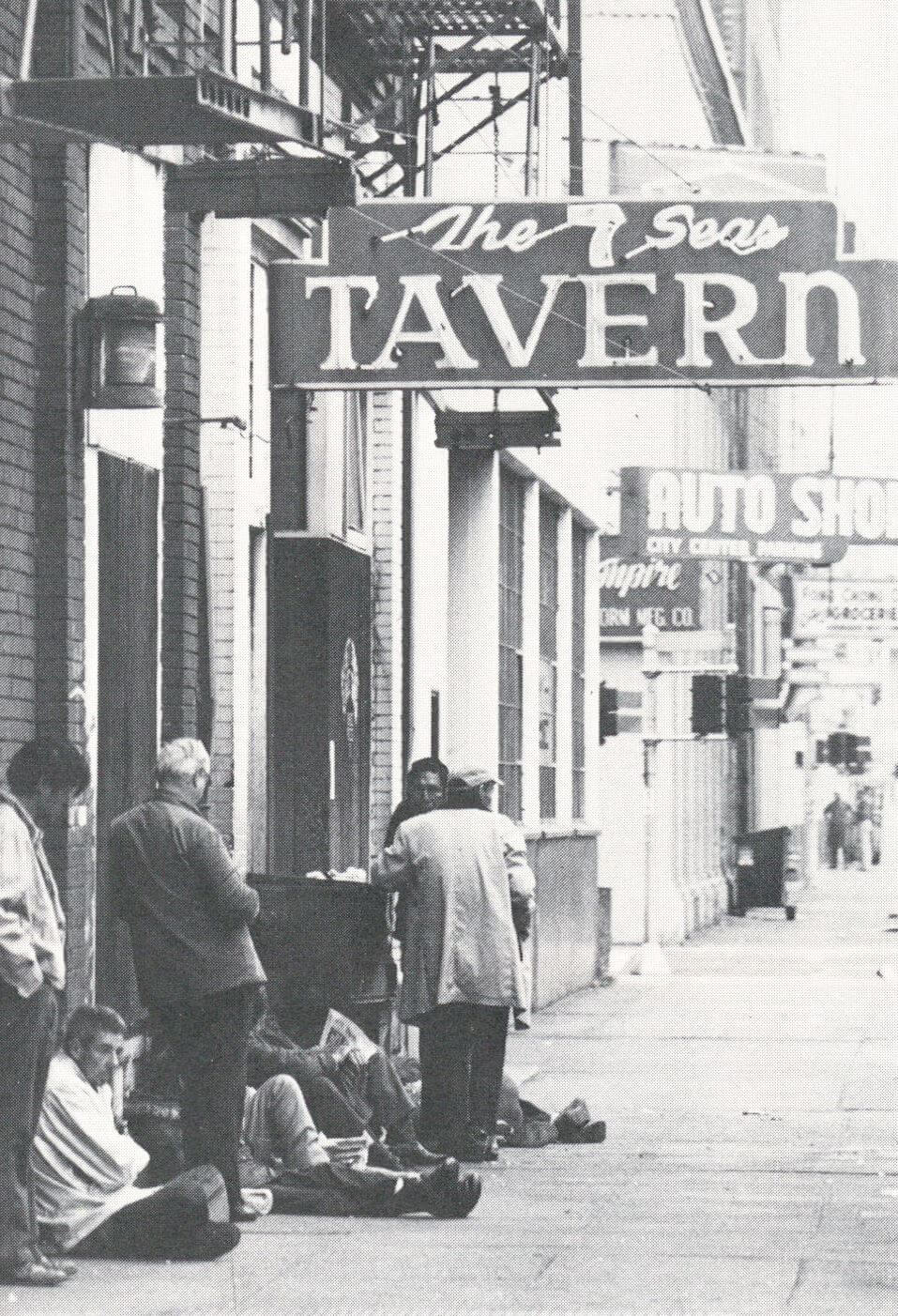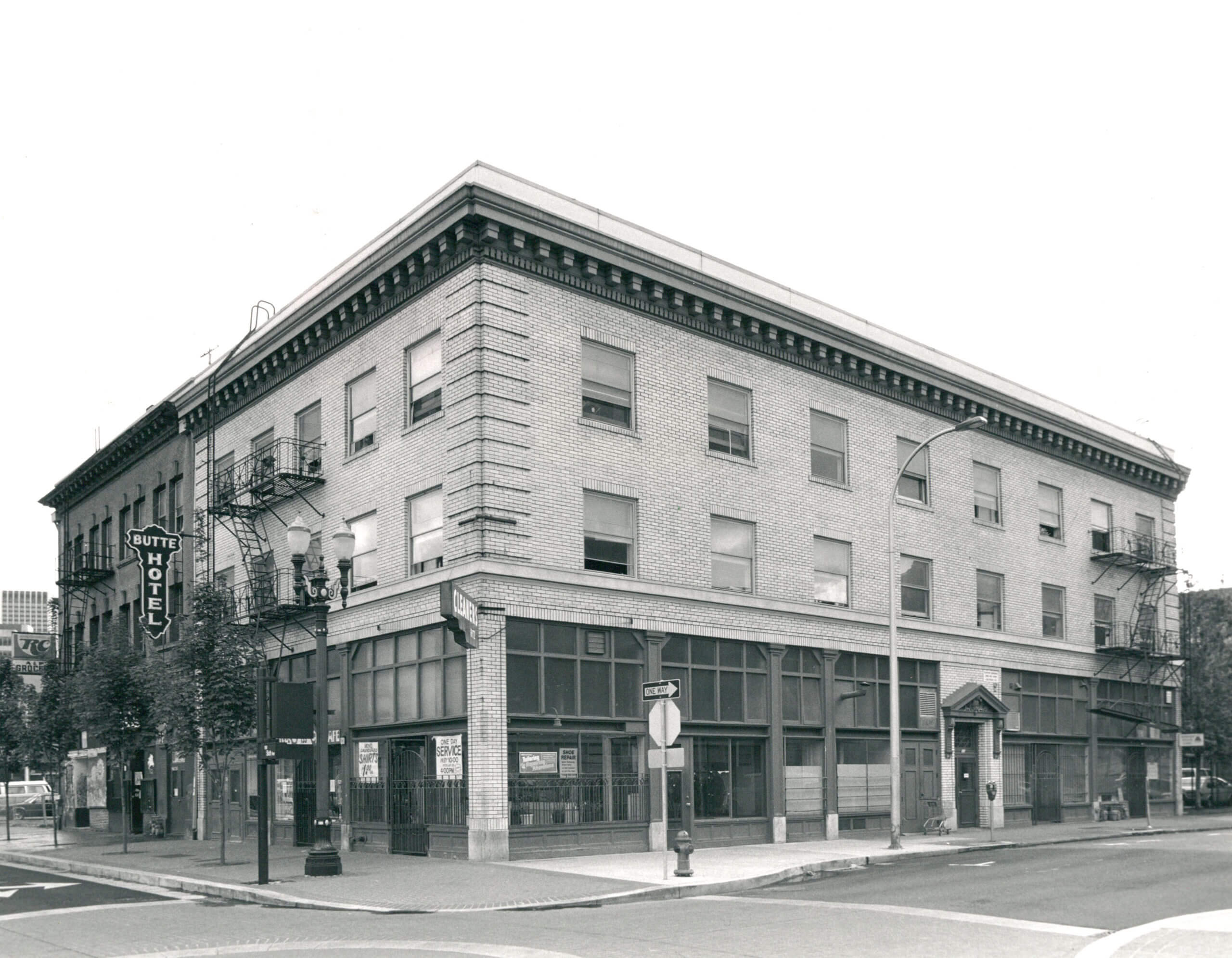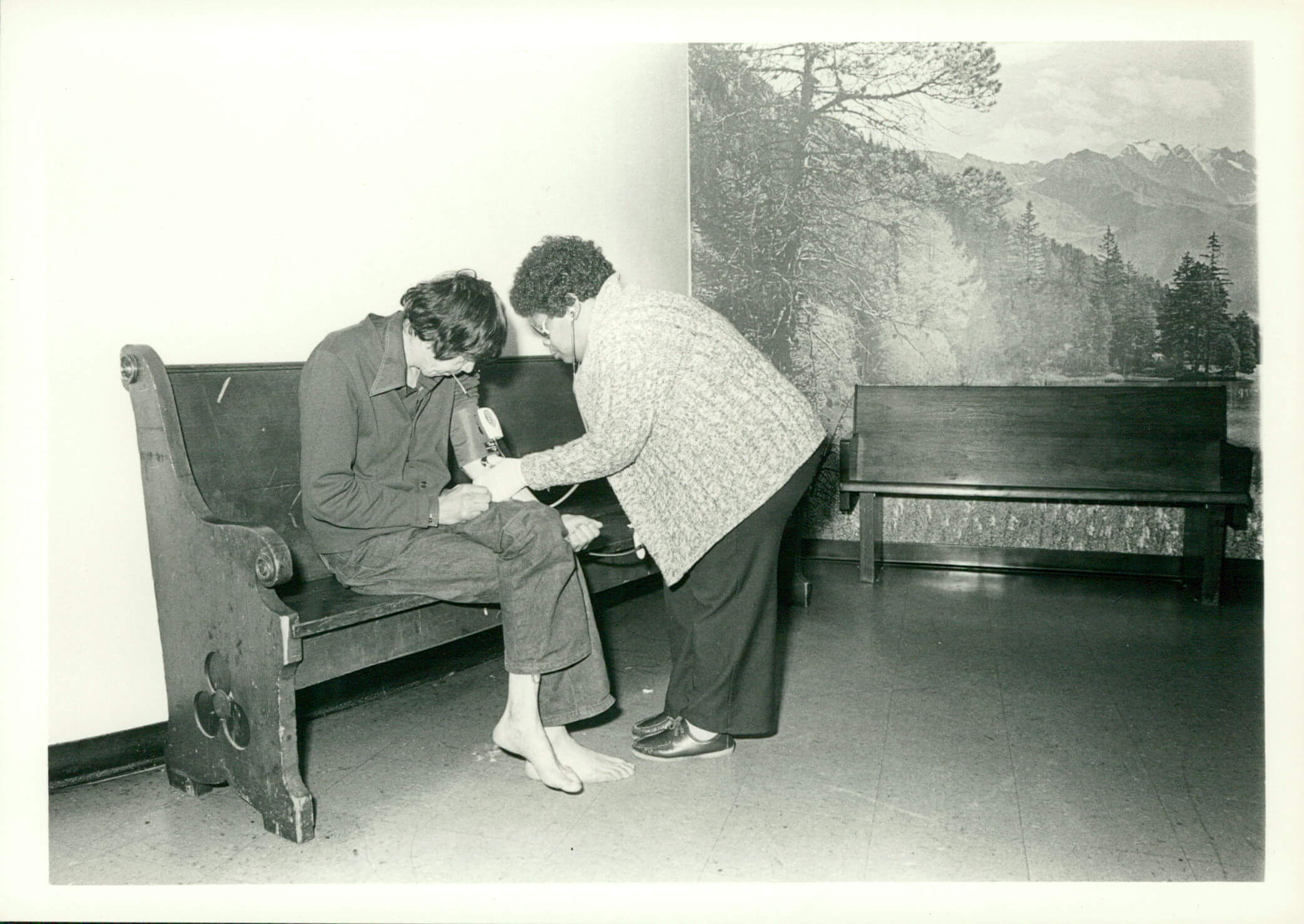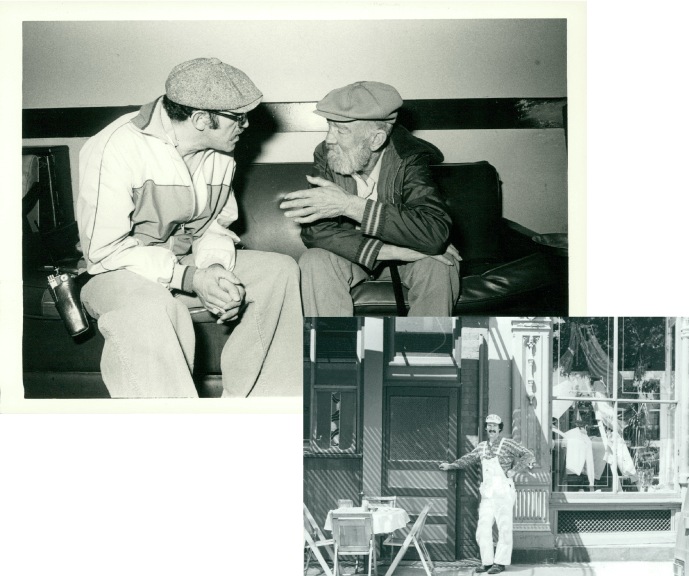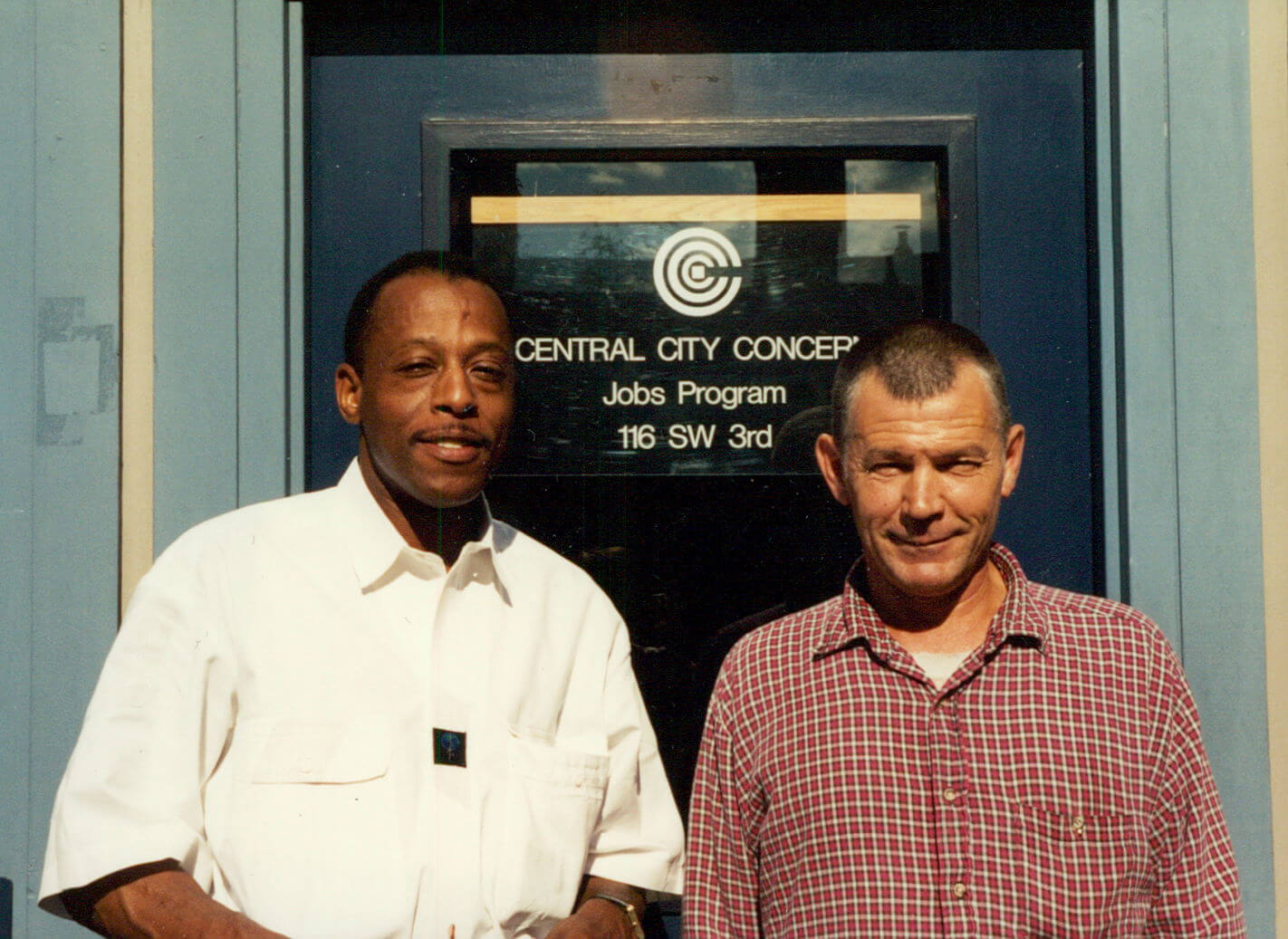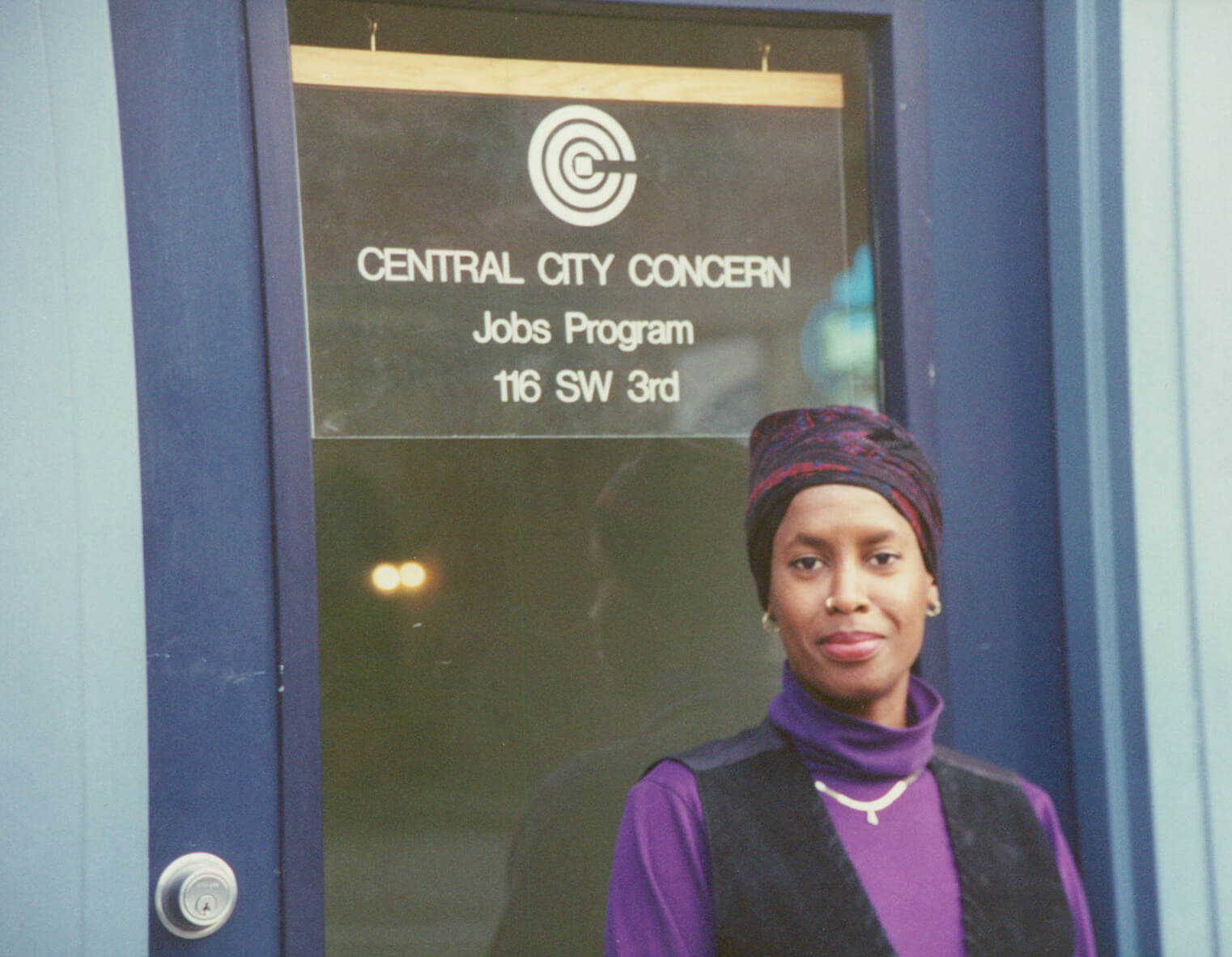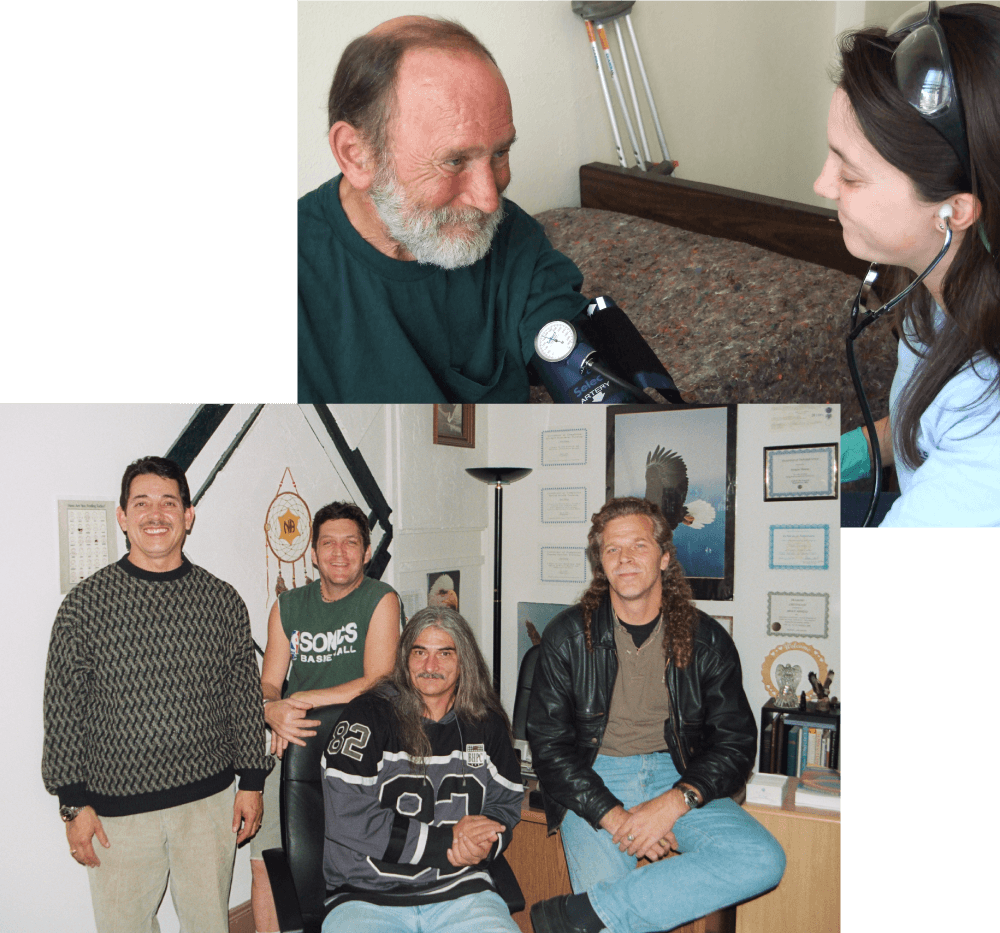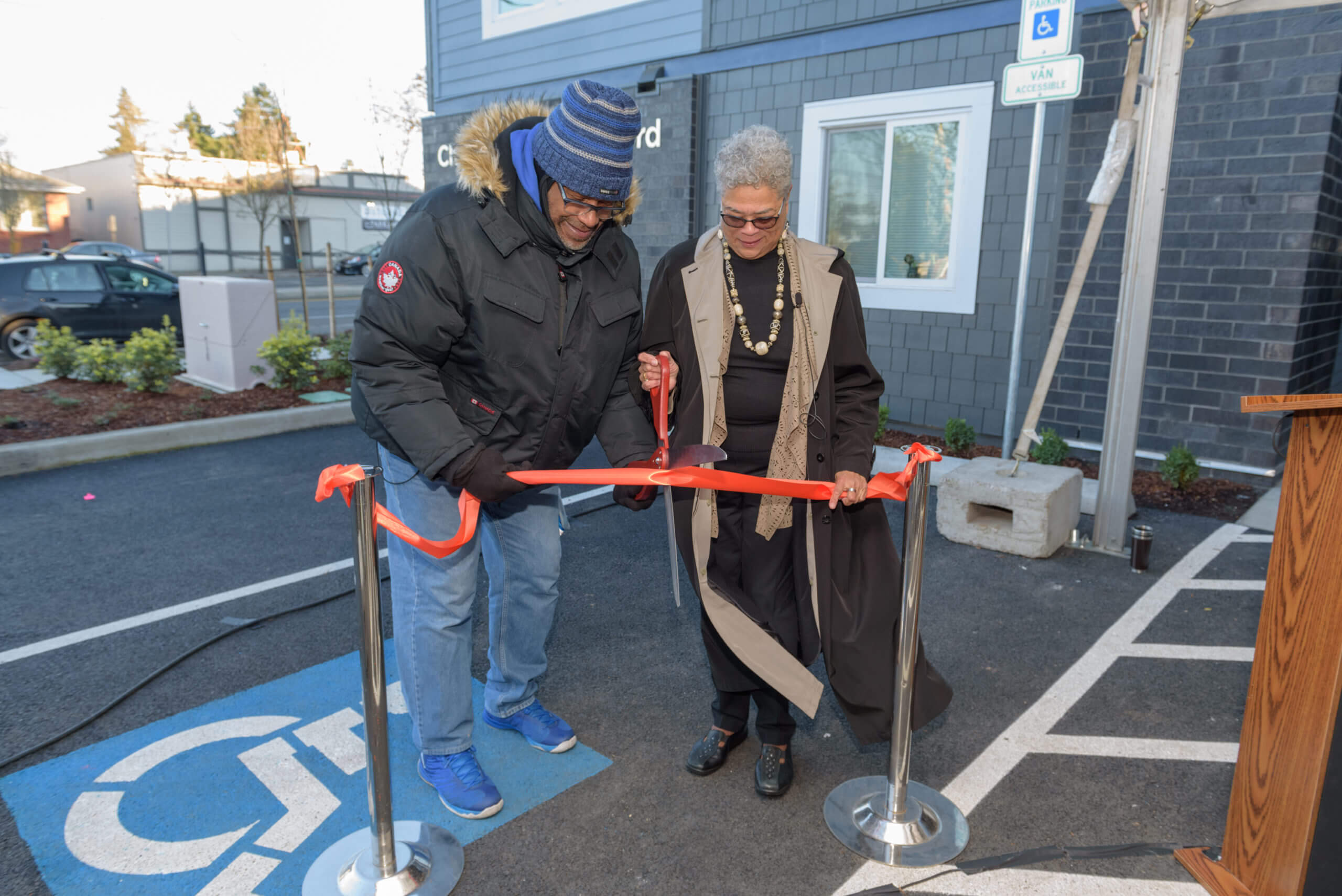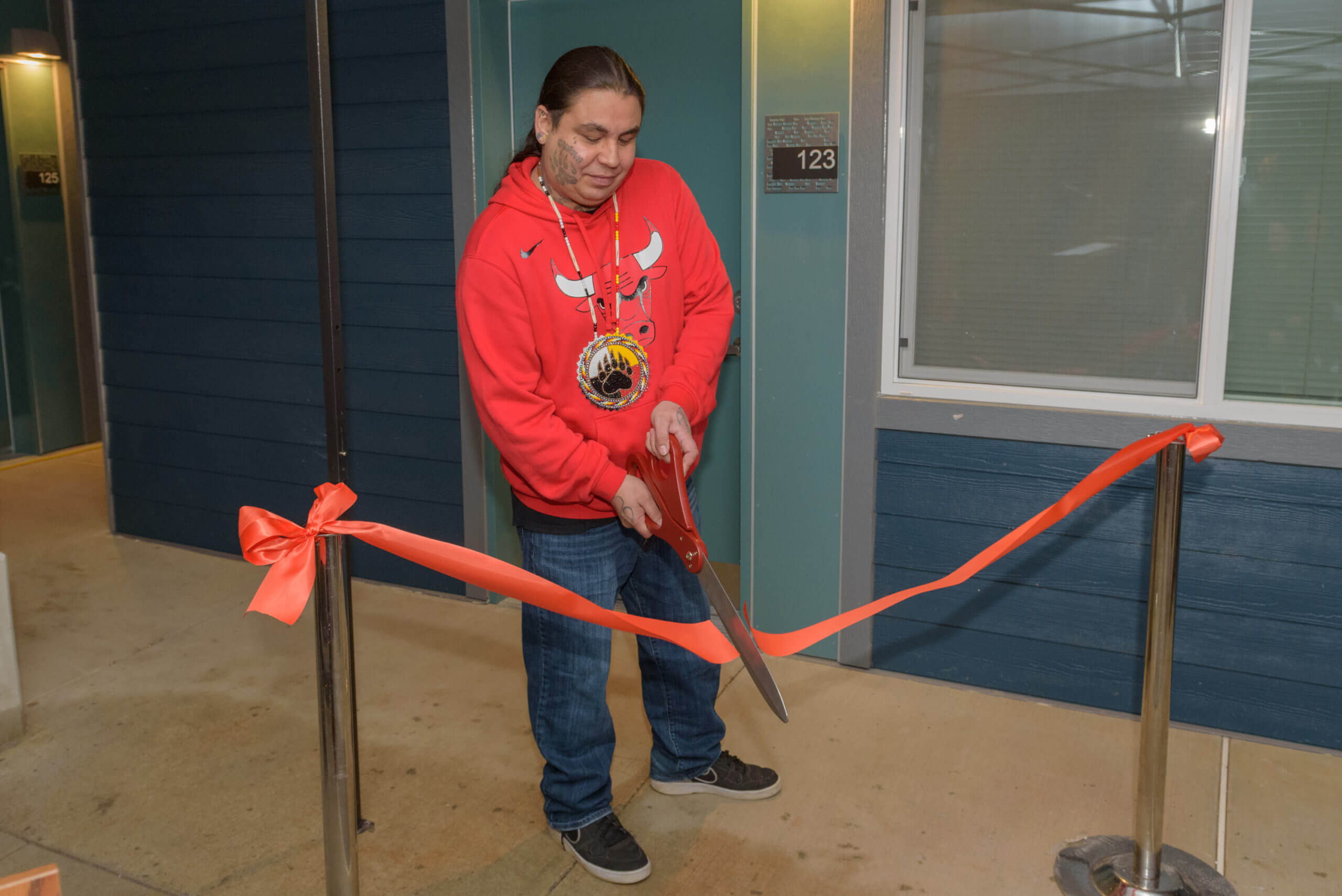1970s
Central City Concern’s roots trace back to 1979, when Portland was seeking solutions to help people on the street who were incapacitated by alcohol use disorder. The agency (originally called Burnside Consortium) was charged with funding local recovery treatment providers and preserving Old Town’s housing stock. We channeled federal funds to social service agencies and listened to the residents of Old Town’s hotels to identify their needs and develop a sense of community. Within a year, we pioneered an integrated system of compassionate care in Old Town that would become a model for the country.
